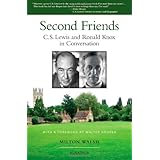 |
| Monastic Lectionary of the Divine Office, |
Night Office by Aelred of Rievaulx
SUNDAY
TWENTY-FIFTH
WEEK IN ORDINARY TIME
First Reading Isaiah 6:1-13
Responsorv Is 6:5; Lk 5:8
Woe is me! I am doomed; for I am a man of unclean lips, and I dwell among a people of unclean lips, + and my eyes have seen the King, the Lord of Hosts.
V.
Simon Peter fell down at Jesus' knees saying: Leave me Lord, for I am a sinful man. + And my eyes ...
Second Reading From a sermon by Aelred of
Rievaulx
In the year of King Uzziah's death I saw the Lord seated on a
throne, high and exalted, and the whole earth filled with his glory. 0 longed for time, time of divine favour,
time all holy people yearn for when they make the daily petition: Thy
kingdom come, thy will be done on earth as it is in heaven.
The whole earth was full of his glory. I see this earth I tread
upon, I feel the burden of this earthly body: both mean toil and sighs for me;
upon both rest the wrath of God rather than his glory. The prince of this world
still holds sway over the rebellious; every day he confronts believers, and
there is scarcely one among God's holy people who does not experience his
assaults. Yet the whole earth is full of his glory.
I know that this earth I tread upon will be delivered from its
enslavement to decay, and that there will be a new earth and a new heaven, and
he who sits upon the throne will say: See, I am making all things new. Even
my earthly body will be filled with the glory of the Lord. At present the earth
yields thorns and thistles for me, since Adam's crime brought a curse upon it.
My body is weak and languid, lazy and burdensome, subject to strong passions
and prone to grave illnesses. But why are you cast down, my soul; why groan
within me? The whole earth will be filled with his glory.
But when will this be? Undoubtedly, when the Lord takes his seat
upon his throne, high and exalted, and refashions our lowly bodies to be
like his own glorious body; when that glory which was revealed in the body
of the Lord at his transfiguration on the mountain shines forth in our earthly
bodies, now risen from the dead and endowed with immortality. Then a new song
will be sung and cries of gladness and joy will be heard in the tents of the righteous,
for winter is past, the rains are over and gone, and flowers have
appeared in the countryside.
It is in order that we may realize the nature of this transformation
that our bodies are now subject to death, or, rather, are actually dead. As the
Apostle says, The body is dead because of sin. So the body is
dead; it is defiled, sick, base-born, mortal. But it will be filled with the
glory of the Lord, who will give life to the dead, purify the defiled, heal the
sick, exalt the base-born, and immortalize the mortal. And if such is the
future felicity of the body, what, I ask, will be that of the spirit?
The cause of our joy will be the vision of the Creator in his
creatures, the love of the Creator in his own being, and the praise of our
Creator in both. His train filled the temple, says Isaiah. What temple?
Scripture says: God's temple is holy, and you are that temple. Now
although our bodies are God's temple, nevertheless, because our souls control
our bodies, our souls are God's temple in a special way. This is the temple in
which during the present life we offer God the sacrifice of a humbled, contrite
heart which he does not spurn. This is the temple in which, when the
corruptible life of the body is over, and we have been carried to the kingdom
of eternal glory where God will wipe away every tear from our eyes, we shall
offer God a sacrifice of praise. As he himself says through the Prophet: A
sacrifice of praise honours me. Now, in the meantime, Lord, may our
sacrifice of contrition placate you, so that, when you sit upon your throne,
high and exalted, our sacrifice of praise may honour you.
Responsory 1 Jn 3:2; Col
3:4
We know
that when Christ
appears we shall be like him, + for we shall see him as he is.
V.
When Christ appears, you also
will appear
with him in glory. + For we shall..




![[St. Symeon the New Theologian]](http://www.stsymeon.com/symeon.jpg)


